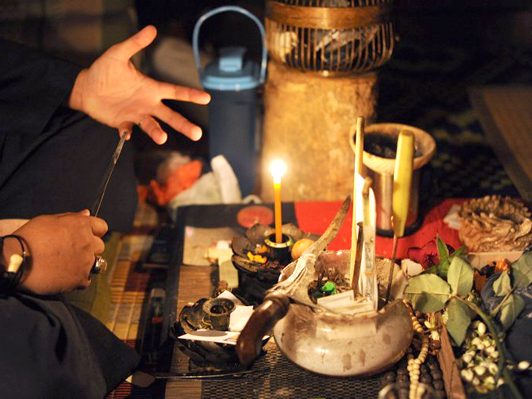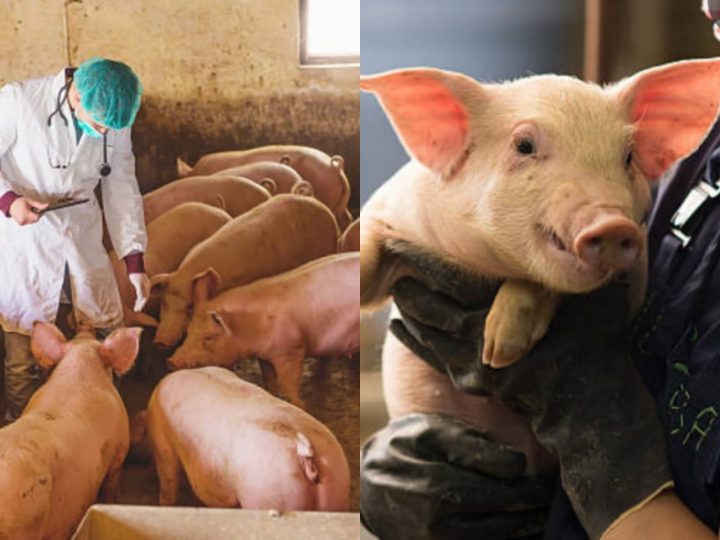Minimal Risk Of Monkeypox Spread In M’sia, Chance Of Human Transmission Low, Says Dr Noor Hisham
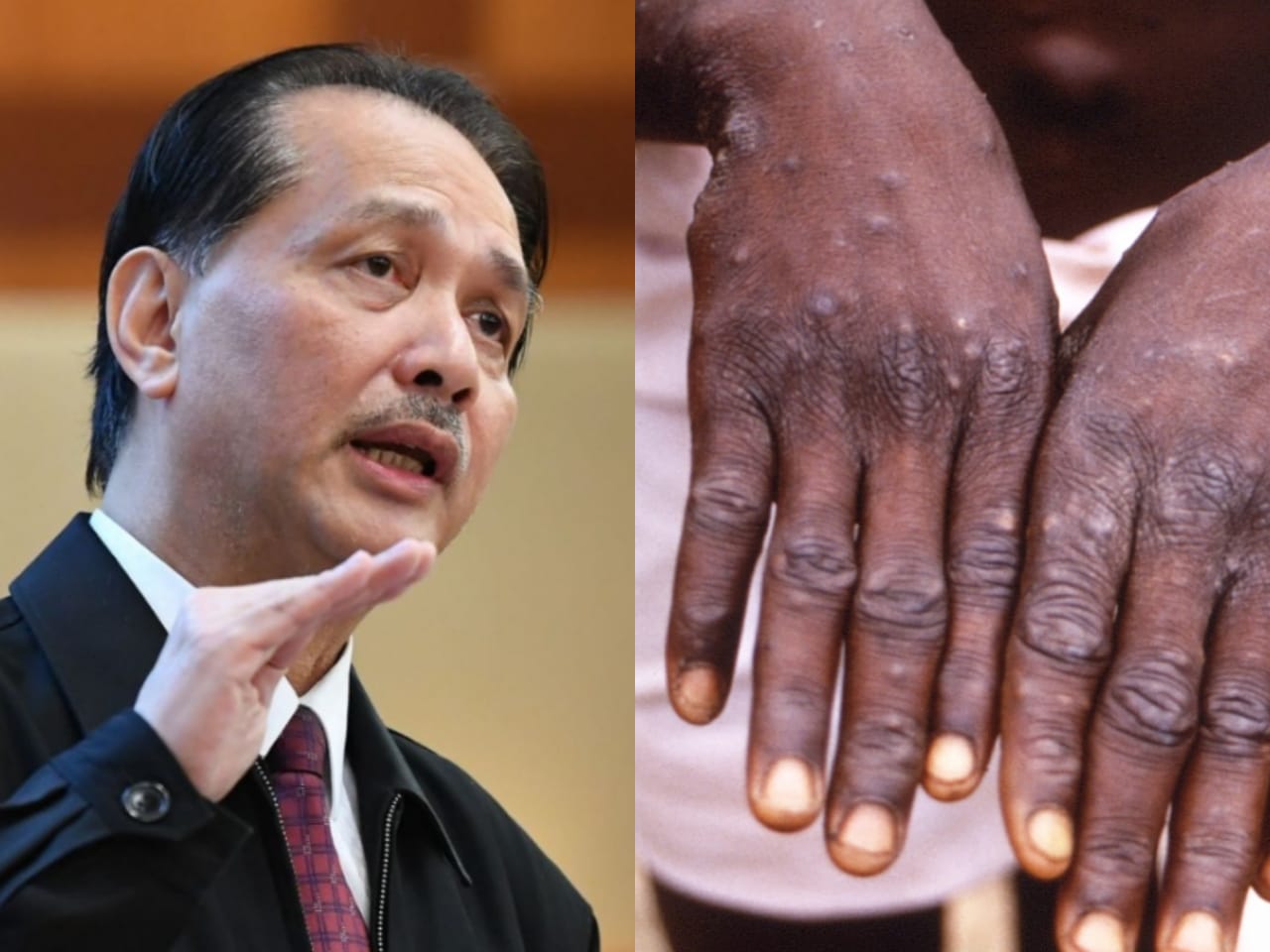 Thirsty for JUICE content? Quench your cravings on our Instagram, TikTok and WhatsApp
Thirsty for JUICE content? Quench your cravings on our Instagram, TikTok and WhatsApp
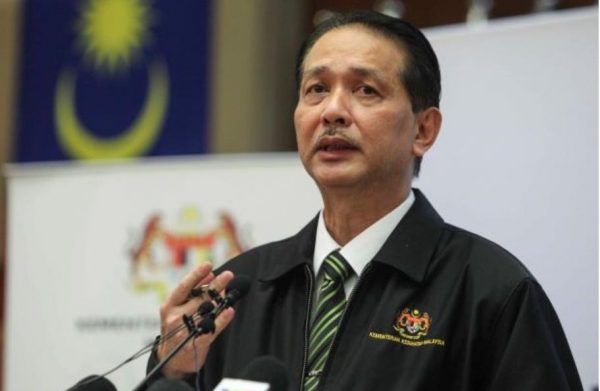
According to Health Director-General Tan Sri Dr Noor Hisham Abdullah, the likelihood of monkeypox spreading to Malaysia is minimal unless there is a history of contact with infected animals or direct contact with patients.
He said in a statement on Saturday (May 21) that the risk of illness transmitting from human to human was low. Monkeypox’s reservoir host (primary disease carrier) remains unidentified for now. African rodents, on the other hand, are thought to be involved in transmission.
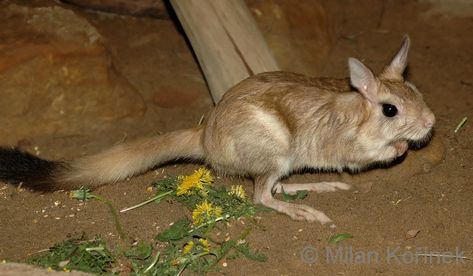
Nevertheless, he noted that the Ministry of Health (MOH) would keep track of the virus’s progression through WHO reports, as well as surveilling probable monkeypox outbreaks at all international border crossings in the nation.
He also advised travellers to take the necessary precautions when visiting countries with monkeypox epidemics, such as Central and West Africa.
“It is critical to practise proper basic hygiene, which includes washing hands after using the restroom or when they become dirty.”
“Avoid direct contact with diseased people’s and animals’ wounds, as well as anything that could be tainted with bodily excretions, such as infected people’s soiled clothes,” he said.
He also advised against coming into contact with wild animals or eating their meat, adding that travellers who enter the country through areas wherein monkeypox is widespread or who show symptoms of the disease within three weeks of departing from those areas should seek medical treatment at the nearest health institution.
“Inform the doctor regarding your travel history. To guarantee the maculopapular rash is entirely dry, restrict all interaction with people and isolate for at least 21 days ,” he said.
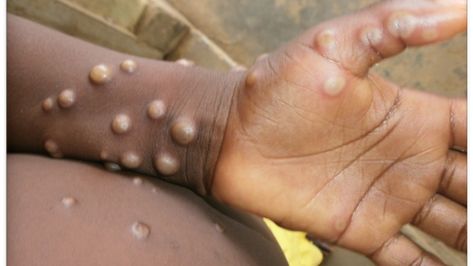
Monkeypox is caused by an infection of ‘orthopoxviruses,’ according to DG Noor Hisham, and the virus is transmitted to people via bites (of infected animals) or direct contact with their blood or other body fluids.
He also mentioned that the virus could also be transmitted from respiratory secretions and direct contact with fluids from maculopapular rashes on an infected person’s body, as well as contaminated bedding or clothing.
The incubation period is usually between six and twenty-one days, and symptoms will last two to four weeks for patients.
He claimed that the Institute for Medical Research and Public Health Laboratory would be conducting tests to detect the monkeypox virus in humans.
“The Veterinary Public Health Laboratory and the Department of Wildlife and National Parks Peninsular Malaysia (Perhilitan) both have the capability to perform tests for the diagnosis of orthopoxviruses in animals,” he added.
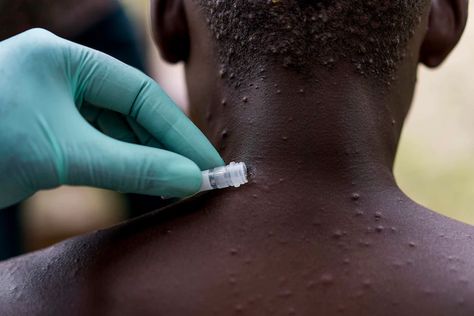
Simultaneously, he claimed that MOH had worked closely with Maqis and Perhilitan to track the spread of monkeypox among wildlife, particularly those imported from Africa and Continental Europe.
Additionally, the Ministry of Health has urged the people to seek prompt medical attention if they are experiencing symptoms of the ailment so that the disease can be isolated.
Monkeypox symptoms are similar to smallpox symptoms but are less severe. These symptoms include a fever, headache, muscle aches, chills, and tiredness, according to the CDC.
Rashes on the cheeks, palms of hands, and soles of feet are the most common symptoms. The rashes might occasionally extend to other parts of the body.
Lymph nodes can also enlarge as a result of monkeypox (lymphadenopathy).
“Occasionally, the MOH will publish updates on the monkeypox disease,” Dr Noor Hisham said, adding that the MOH has created a list of frequently asked questions regarding the virus that can be accessed from the National CPRC (Crisis Preparedness and Response Centre) Facebook page.
More than 100 cases of monkeypox have been documented in many countries across Europe, the Americas, and Australia as of today, with the majority of cases reporting no background of travel to regions where the disease is endemic.
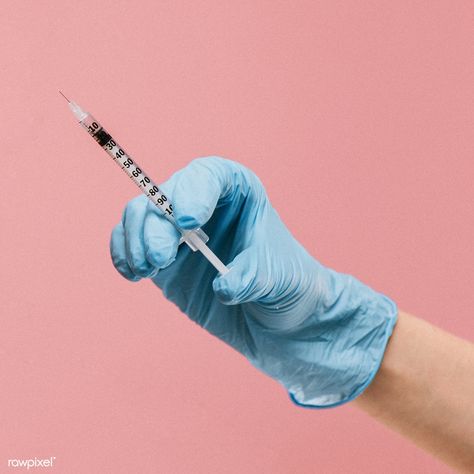
As for vaccination, smallpox immunisation has been shown to be effective against monkeypox, according to virologist Dr Kumitaa Thev Dass of Universiti Sains Malaysia, because the two viruses are closely related.
These vaccines were phased out in the early 1970s after the illness was declared eradicated.
The US Food and Drug Administration has since authorized the Imvamune or Imvanex (JYNNEOS) vaccine, which is an attenuated live viral vaccination to treat smallpox.
However, because it is an uncommon disease in many countries, it is unknown if it is widely available at the moment.

 Get Audio+
Get Audio+ Hot FM
Hot FM Kool 101
Kool 101 Eight FM
Eight FM Fly FM
Fly FM Molek FM
Molek FM
